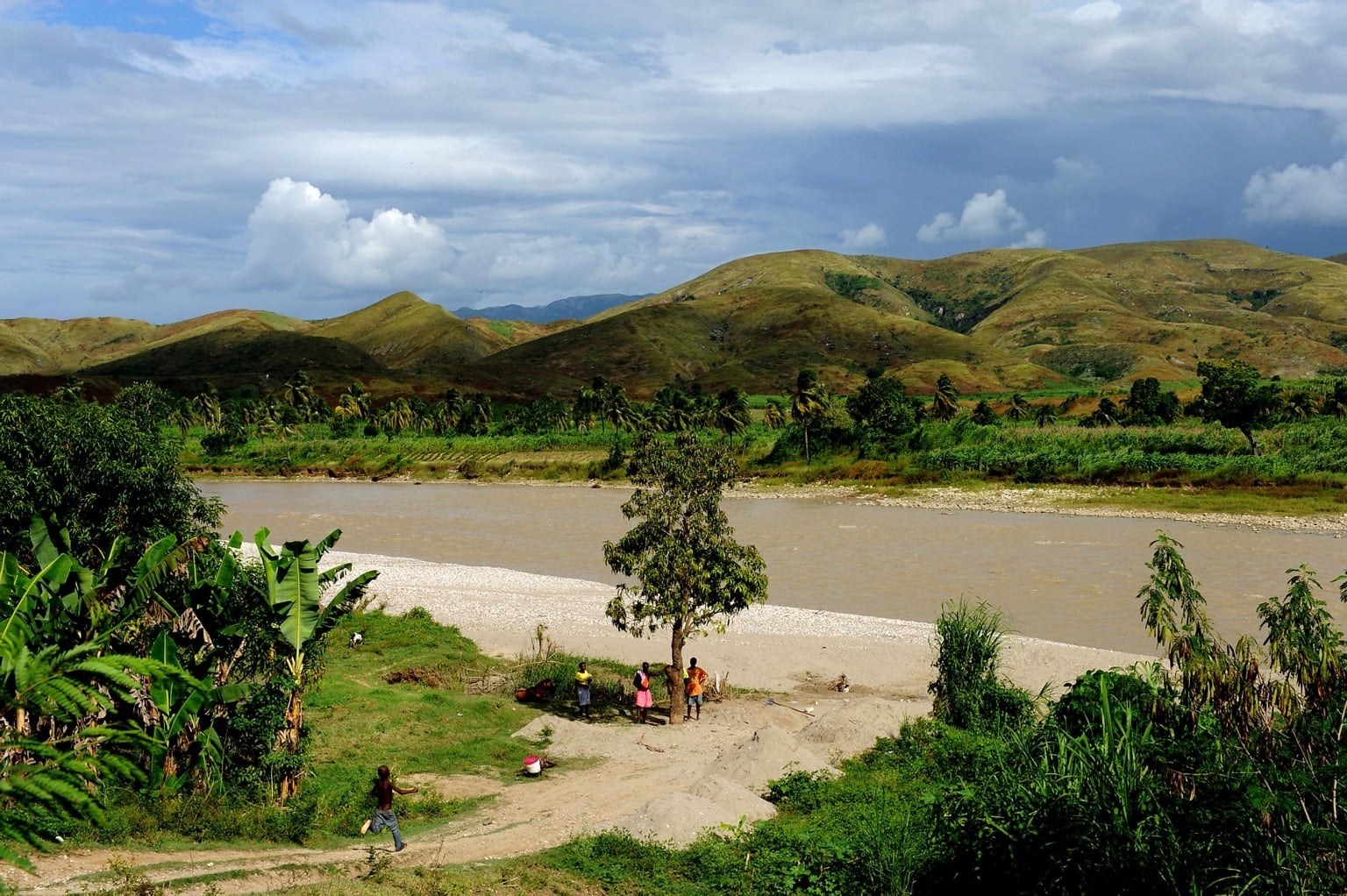
The River Artibonite, Haiti | Photo: Kendra Helmer, USAID
By Zara Gounden & Fraser Byers – June 12, 2023
A coalition of Haitian organizations representing peasant workers, women, and youth have issued a letter of protest to an American mining company’s interest in opening a massive gold mining operation. The groups assert that mining would harm watersheds and pollute already scarce water reserves.
The letter of protest by the 16 signatory groups comes after years of grassroots opposition to multi-national companies interested in probing Haiti’s potential mineral wealth. Geologists estimate that the island’s gold and other hard rock mineral reserves could be worth $20 billion. The Colorado-based Newmont Corporation, one of the world’s largest gold producers, initiated several preliminary exploration efforts after it arrived on the island in 2008. It suspended Haitian operations in 2012.
Along with civic protest, its mining operations have been restricted by legislative barriers, natural disasters, and political turmoil.
As Haiti scrambles to achieve political stability, the threat of government-sanctioned mining operations casts a daunting shadow. This open letter follows a series of previous letters, echoing concerns that mining may be embraced to revive Haiti’s struggling economy.
Samuel Nesner, a leader in the anti-mining movement, explained to Circle of Blue:
“The audience is the three key players, the population, the government and the mining companies… The [objective] is to mobilize the population and to solidarize them together to make collective decisions. And for the government, it is to demand respect for the law, respect for the rights of life, the rights of the population. For mining companies, [we demand] the respect of international conventions, human rights, and environmental rights.”
In a country wracked by earthquakes, storms, and economic turmoil mining is seen as a potential avenue to revive Haiti’s well-being. The World Bank, for instance, supported the 2017 draft of a law to legalize mining in the Caribbean nation.
Opponents, though, argue that “extractive projects would make our lives more difficult in this country.” The open letter cites the extreme population density of Haiti in concluding that “there is no way to ensure that metal mining does not occur on land where people live.”
Metal mining often releases toxic chemicals, such as cyanide and mercury, that contaminate rivers, streams, lakes and groundwater. Mines also require immense quantities of water to operate.
Newmont states that its standards of operation rank among the world’s best. “We are committed to protecting the earth, addressing potential environmental threats with solutions, and identifying opportunities to move the industry toward a more sustainable future,” said the company in its 2022 Sustainability Report.
Newmont also has encountered similarly fierce protests over its mining operations in other regions of the world. In 2016 it suspended operations of its Conga gold mine in Peru following fierce clashes with residents over water supplies. In 2010 the company was found guilty by the Ghanaian government for willfully causing a cyanide spill at their Ahafo mine – and attempting to cover it up.
[Quotations from Samuel Nesner have been translated from French]
Fraser is a reporting intern at Circle of Blue. Originally from Salt Spring Island, Canada, he is now a Davis Scholar pursuing dual degrees with UC Berkeley and Sciences Po Paris. Fraser is majoring in Environmental Economics and Policy, and Politics and Government – Specializing in the MENA region.



